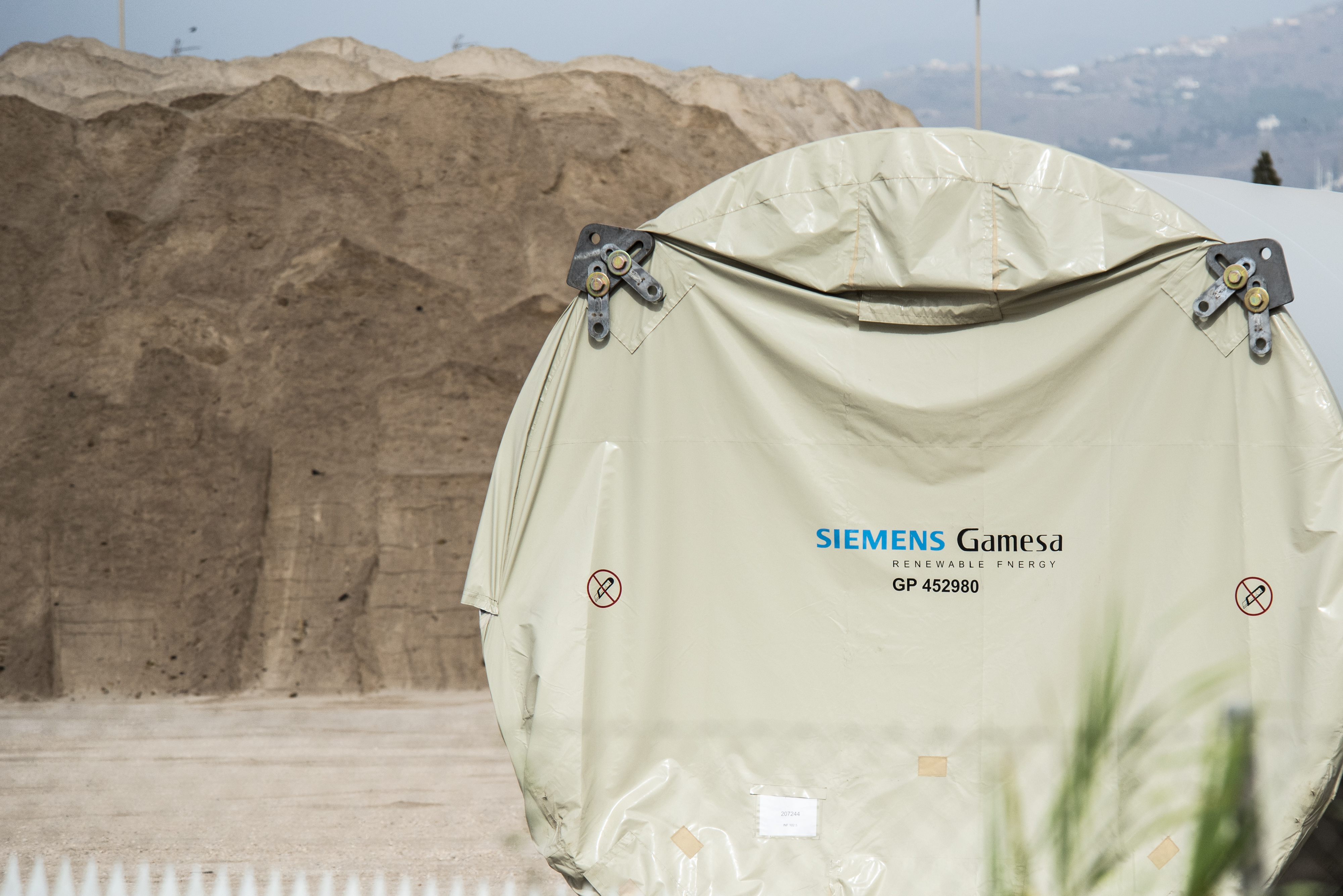
The Norwegian government today announced it has sold 256 million Euros of shares in the two US-Canadian firms PCS and FMC due to their imports from Western Sahara.
Today, the Norwegian government announced its exclusion of two leading fertilizer importers from their portfolios, due to ethical concerns relating to their imports from occupied Western Sahara. The fund thus follows the row of European investors kicking out fertiliser firms over the unethical trade. As of 31.12.2010, the government had invested 256 million Euros in the two companies.
The fund's Council on Ethics concluded that the 2 companies' imports "represents particularly serious violations of fundamental ethical norms, as defined by the Ethical Guidelines." Download the 18 page explanation from the Norwegian government pension fund here (pdf), published today, and see press release from the Government below.
Western Sahara Resource Watch has for many years been trying to get answers from the firms involved in the trade, including the ones now excluded from the government's portfolio. The organisation has also tried to get answers from the US law firm Covington & Burling that lobbies internationally to defend the illegal trade. The law firm claims that Saharawis are benefiting, but refuse to explain to requests from Saharawis as to how they supposedly benefit.
Potash Corp has failed to reply to questions sent byWestern Sahara Resource Watch, and not corrected a statement on its website where they in practice argue for the occupation of the territory. This summer, Saharawis were hunger striking against PCS' plunder of Western Sahara.
The press release below was issued by the Norwegian Ministry of Finances, 06.12.2011.
Government Pension Fund Global: Two companies excluded from the Fund’s investment universe
Read the press release from the Norwegian government.
The Ministry of Finance has excluded the US company FMC Corporation and the Canadian company Potash Corporation of Saskatchewan (Potash) from the GPFG investment universe. The companies’ conduct represents particularly serious violations of fundamental ethical norms, as defined by the Ethical Guidelines. The breaches result from the companies’ purchases of phosphate from Western Sahara.
In its letter of 15 November 2010 to the Ministry of Finance, the Council on Ethics has recommended the exclusion of the aforementioned companies from the GPFG investment portfolio. The Ministry of Finance has decided to follow the recommendation from the Council on Ethics.
Problematic resource exploitation in not self-governed territories
Potash and FMC purchase phosphate from the Moroccan company Office Cherifien des Phosphates (OCP). OCP extracts phosphate in Western Sahara, a territory which is not self-governed and which has no recognised administrator. In 2002, the UN’s legal adviser issued a general legal opinion on the legality of mineral resources extraction in territories which are not self-governed, which also included a specific assessment of this issue with regard to the situation in Western Sahara. The opinion stated that mineral resources extraction in territories which are not self-governed is only acceptable if it benefits the local population of the territory. The Council on Ethics takes the view that the interests of the local population are not served by OCP’s operations, and that it is this unacceptable situation which constitutes the core of the breach of ethical standards in the present case.
Further, the Council on Ethics wrote that not every company which purchases phosphate from Western Sahara must also necessarily be said to be acting unethically. In its evaluation of this issue, the Council on Ethics considered various matters, including the companies’ knowledge about and specification of the source of the phosphate, the interchangeability of the phosphate, and the companies’ contractual ties with OCP. In its decision to adopt the recommendation of the Council on Ethics, the Ministry of Finance has attached particular weight to the fact that the companies know the origin of the phosphate, that they specify that they want phosphate from the particular Western Saharan mine in question, and that it appears likely that the companies will continue to purchase this particular phosphate for the foreseeable future.
Divestment and exclusion
In its letter of 30 September 2011, the Ministry of Finance instructed Norges Bank to sell its shares in the companies. The share sales have now been completed. At the end of 2010, the GPFG held shares valued at around NOK 300 million in FMC Corporation and around NOK 1 570 million in Potash.
The Ministry’s final decision on whether or not to divest from a company is made on the basis of the Council's recommendation. The Ministry has not made an independent assessment of every aspect of the Council’s recommendation but is satisfied that the recommendation document establishes with adequate certainty that the criteria for exclusion, such as they are defined by the Guidelines for observation and exclusion, are met.
SRI update
The following overview enlists stock-exchange registered companies with current or recent operations in occupied Western Sahara. Updated 10 April 2025.
Siemens Energy misrepresents EU Court rulings
The German multinational - which supplies the Moroccan energy projects in the occupied territory - fails to grasp EU court rulings.
Brazilian cement giant Votorantim behind sand plunder
WSRW was present as the Brazilian company Votorantim last week received a cargo of sand from occupied Western Sahara in Tenerife, Spain.
Engie starts power production on occupied land
WSRW strongly condemns Engie's blatant disdain for international law in occupied Western Sahara.


